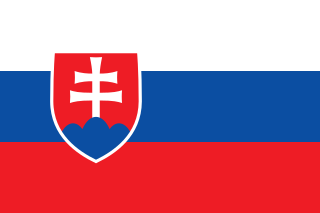
Corruption in Albania is a problem. According to Global Corruption Barometer 2013, 66% of respondents indicated that level of corruption has increased in Albania.

In general, Belgium has a well-developed legal and institutional framework for fighting against corruption. Transparency International's 2017 Corruption Perception Index ranks the country 16th place out of 180 countries.

This page examines corruption in Cyprus.

According to the 2018 Corruption Perceptions Index from Transparency International, Denmark ranks first place out of 180 countries and it has consistently been in the top-4 since the publication of the first report in 1995.

Council of Europe's Group of State Against Corruption (GRECO) in its evaluation report noted that specificities of Switzerland's institutions which enjoy considerable public confidence. It underlines, however, that the very organisation of the system allows subtle pressure to be exerted on politicians and the judiciary.

Corruption in Luxembourg is examined on this page.

Corruption in Latvia is examined on this page.

Corruption in Portugal is examined on this page.

Transparency International’s Global Corruption Barometer 2013 reveals that political parties and businesses are the most corrupt institutions in Germany.

Corruption is rare in the Netherlands in all major areas—judiciary, police, business, politics—as the country is considered as one of the least corrupt within the European Union. In the 2017 edition of Transparency International’s Corruption Perceptions Index, the Netherlands ranked eighth least corrupt country worldwide.

Corruption in the Czech Republic is considered to be widespread by a majority of the Czech public, according to Transparency International’s Global Corruption Barometer 2013.

In recent years, Montenegro has increased its efforts to implement preventive and legislative measures needed to curb corruption. For example, anti-bribery provisions in the Criminal Code, as well as laws on money laundering, conflict of interest, access to information, and political funding have all been strengthened, while awareness-raising activities and training of public officials in integrity standards have been intensified.

Corruption in Slovenia is examined on this page.

Austria has a well-developed institutional and legal system, and most corruption cases under investigation by a parliamentary committee end with judicial trials and effective judgments. However, there are several significant Austrian corruption cases which have taken place during the past decade involving land and regional officials, high-level public officials, the central government and, in one instance, the former Chancellor.

Corruption in Slovakia is examined on this page.

According to several public surveys in Kosovo and reports from institutions such as the European Commission, levels of corruption and impunity among politicians are high. Transparency International's 2017 Corruption Perception Index ranks the country 85th place out of 180 countries.

Corruption is pervasive at all levels of government in Iraq. Public survey from Transparency International indicates that a majority of general public is not satisfied with the government's current efforts in fighting corruption. Transparency International's 2017 Corruption Perception Index ranks the country 169th place out of 180 countries.

Corruption levels are perceived to be high by surveyed residents of Serbia, and public trust in key institutions remains low.

A general public survey on corruption from Transparency International shows that citizens perceive Bosnia's political structures to be deeply affected by corruption. Two-thirds of citizens believe that the government's efforts to combat corruption are ineffective.

In order to qualify as a member of the European Union, Croatia has taken measures to combat corruption. The legal and institutional framework as well as government agencies are addressing the issue of corruption in a much larger scale, and the inter-agency cooperation for corruption prevention has also increased. USKOK has prosecuted 2,000 individuals and achieved a 95% conviction rate (2012), including former Prime Minister Ivo Sanader.





















